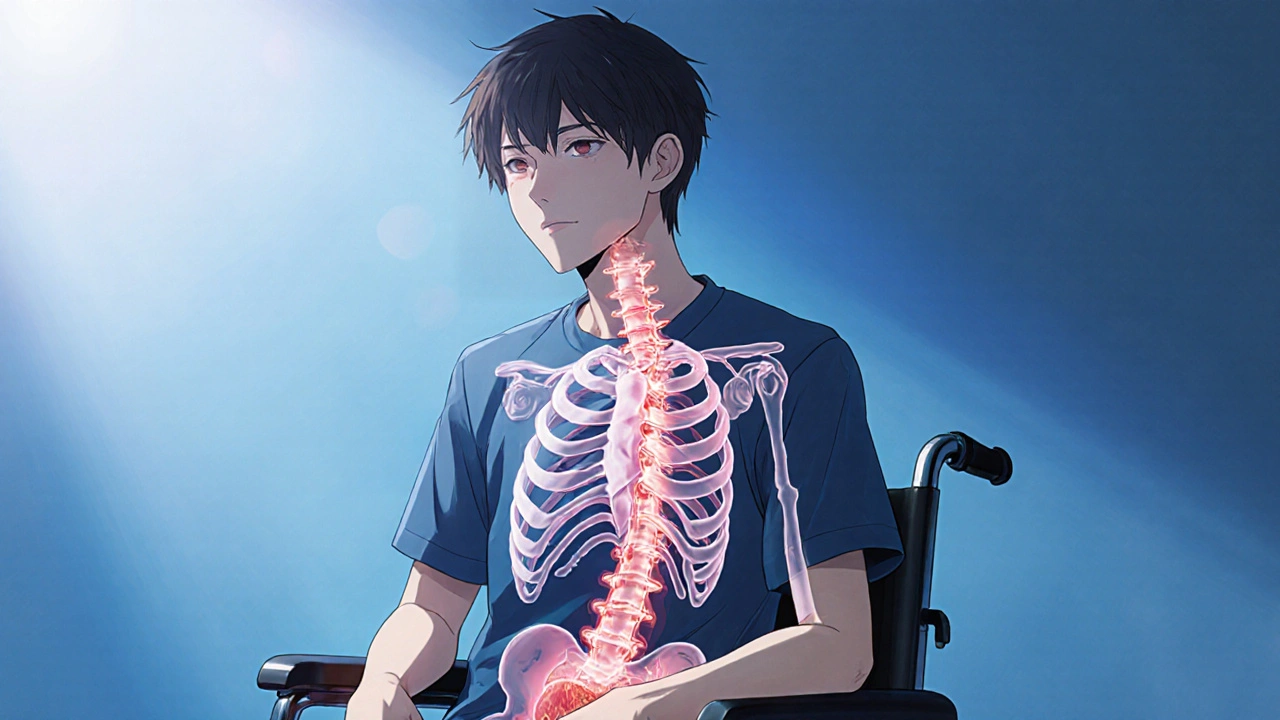Learn how spinal cord injuries trigger overactive bladder, spot key symptoms, get proper diagnosis, and explore medication, catheter, and surgical options for effective management.
MoreSpinal Cord Injury: Key Insights and Resources
When talking about spinal cord injury, damage to the spinal cord that can disrupt sensation, movement, and autonomic functions. Also known as SCI, it often requires lifelong management and multidisciplinary care. A typical rehabilitation, structured program of physical therapy, occupational therapy, and counseling is the cornerstone of recovery. Spasticity, involuntary muscle stiffness that many with SCI experience, can limit mobility and increase pain. Finally, mobility aids, devices like wheelchairs, walkers, and exoskeletons that help maintain independence, play a vital role in daily life.
Why Understanding Spinal Cord Injury Matters
Spinal cord injury encompasses a range of consequences – from loss of leg function to issues with bladder control. Because the nervous system governs many automatic processes, an SCI often leads to complications such as overactive bladder, pressure ulcers, and respiratory challenges. Effective rehabilitation requires a team of doctors, therapists, and caregivers who coordinate to keep complications at bay. For instance, managing spasticity isn’t just about muscle tone; it directly influences quality of life, making daily tasks like dressing or transferring easier or harder. Likewise, choosing the right mobility aid can mean the difference between being house‑bound and staying active in the community.
Research shows that early intervention after injury improves functional outcomes. When patients start a tailored rehab plan within weeks, they tend to regain more strength and independence than those who wait. This link between timely rehab and better results underscores why knowledge about spinal cord injury is essential – it empowers patients and families to act quickly. Moreover, understanding bladder management options—such as intermittent catheterization or pharmacologic therapy—helps prevent infections and kidney damage, a common concern for people with SCI.
Our collection below reflects the breadth of topics surrounding spinal cord injury. You’ll find practical guides on medication choices, tips for handling spasticity, advice on selecting mobility devices, and insights into related health issues like bone health and urinary problems. Whether you’re newly diagnosed, supporting a loved one, or a seasoned caregiver, the articles ahead offer concrete steps you can take right now.
Ready to dive deeper? Browse the posts below to get actionable advice, compare treatment options, and stay up‑to‑date with the latest research that can make a real difference in day‑to‑day living.

